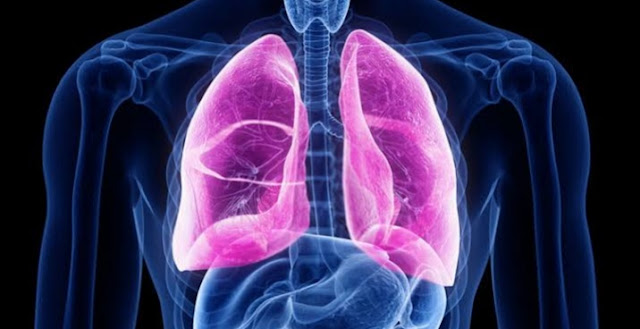Cystic fibrosis|CF| & its impact on Health .
|Introduction| |facts |causes| |sign and symptoms|
|Diagnosis| |Treatment|
what is Cystic fibrosis
• Cystic
fibrosis is a disease that changes how body makes mucus and sweat. It
affects how well lungs, digestive system, and some other body parts
work. It’s caused by a flawed gene.
• In cystic fibrosis
Ø mucus that’s too thick or sweat that’s too salty
Ø If heavy mucus clogs your lungs, it’s hard to breathe
Ø It can also block pancreas so patient can’t digest food as well.
Ø The disease may also cause too much sweating and taking salt away from body. That salt is needed by body to work well.
• In cystic fibrosis
Ø mucus that’s too thick or sweat that’s too salty
Ø If heavy mucus clogs your lungs, it’s hard to breathe
Ø It can also block pancreas so patient can’t digest food as well.
Ø The disease may also cause too much sweating and taking salt away from body. That salt is needed by body to work well.
Facts of Cystic fibrosis
Here are some key factors about cystic fibrosis. More element
is in the foremost article.
Cystic fibrosis (CF) entails the manufacturing of mucus that is a whole lot thicker and extra sticky than usual.
It commonly influences the lungs and digestive system.
CF is a hereditary situation that happens in a infant when each dad and mom have the faulty gene.
All newborns in the U.S. are screened for CF.
There is no cure, however appropriate vitamin and taking steps to skinny mucus and enhance mucus expectoration can help.
Causes of Cystic fibrosis
CF is an inherited condition. For any individual to have CF, they want to inherit the faulty gene from each of their parents.
The faulty gene incorporates codes for producing a protein that controls the go with the flow of salt and water backyard of the organs, such as the lungs and the pancreas.
In CF, the stability of salt is disturbed, main to too little salt and water outdoor of the cells and the manufacturing of thicker-than-normal mucus.
People with solely one replica of the faulty gene are referred to as carriers. They do now not have the situation or its symptoms. To have the disease, each mother and father should be carriers.
If two carriers have a child, there is a:
25 percent, or 1 in 4, hazard the baby will have CF
Sign and Smptoms of Cystic fibrosis
• Babies
can show signs of cystic fibrosis soon after birth. Some of the first ones you
might notice could be:
• Baby’s skin is salty
• He doesn’t pass first meconium when he’s born.
symptoms include:
• Coughing up thick mucus
• Wheezing or shortness of breath
• Getting sinus infections, bronchitis, or pneumonia often
• Growths, called polyps, in the nose
• Bulky, oily, or foul-smelling stool
• Too much gas, constipation, or stomach pain
• Weight loss or failure to gain weight
• Low bone density
• Wide, rounded fingertips and toes, called clubbing
• Sometimes symptoms don’t appear until the teen or adult years. A late diagnosis may mean you have a more mild case of cystic fibrosis. Most people’s symptoms will get worse over time.
• Later in life, cystic fibrosis can also cause pancreatitis, liver disease, or gallstones. Many people will get cystic fibrosis-related diabetes as they get older.
• Baby’s skin is salty
• He doesn’t pass first meconium when he’s born.
symptoms include:
• Coughing up thick mucus
• Wheezing or shortness of breath
• Getting sinus infections, bronchitis, or pneumonia often
• Growths, called polyps, in the nose
• Bulky, oily, or foul-smelling stool
• Too much gas, constipation, or stomach pain
• Weight loss or failure to gain weight
• Low bone density
• Wide, rounded fingertips and toes, called clubbing
• Sometimes symptoms don’t appear until the teen or adult years. A late diagnosis may mean you have a more mild case of cystic fibrosis. Most people’s symptoms will get worse over time.
• Later in life, cystic fibrosis can also cause pancreatitis, liver disease, or gallstones. Many people will get cystic fibrosis-related diabetes as they get older.
Diagnosis of Cystic fibrosis
Ø Most
people diagnosed with cystic fibrosis today are babies from
screening programs.
Ø More
than 75% of children with cystic fibrosis get a diagnosis by age 2
Ø When
baby is born: A few hours after birth, hospital staff take a sample of
baby’s blood.
Sometimes scientists check it for broken CTFR genes
Ø Doctor
will find out by measuring how much salt is in his sweat. A high level means he
has cystic fibrosis
Ø In some cases,
human beings don’t discover out they have cystic fibrosis till they’re young
adults or adults.Ø
Treatment of Cystic fibrosis
• Airway
clearance strategies can assist you breathe through clearing the mucus from
your lungs. One frequent approach is known as postural drainage and percussion.
Patient sits or lie in exceptional positions to let mucus drain from the small
airways in lungs to the giant ones. Then bodily therapists faucets your chest
to loosen the mucus even more, which approves affected person to get rid of it
with a cough.Inhaled drugs like dornase alfa
(Pulmozyme), albuterol,
salt solution, steroids, or antibiotics thin mucus, clear the lungs,
and fight infections.
• Medicines
such as ibuprofen fight inflammation and reduce swelling in lungs.
• If
pancreas isn’t working well, taking enzyme pills will help digest fats and
proteins and absorb more vitamins from your food.
• Supplements of
vitamins A, D, and E can replace the nutrients intestines can’t absorb.
• Oxygen
therapy: If severe lung disease is present, patient need to breathe oxygen
through a mask in nose
• A lung
transplant is an option for people with severe lung disease


Post a Comment
Post a Comment